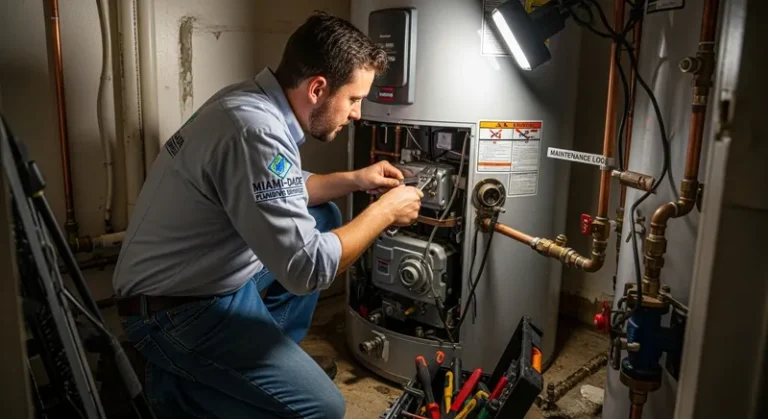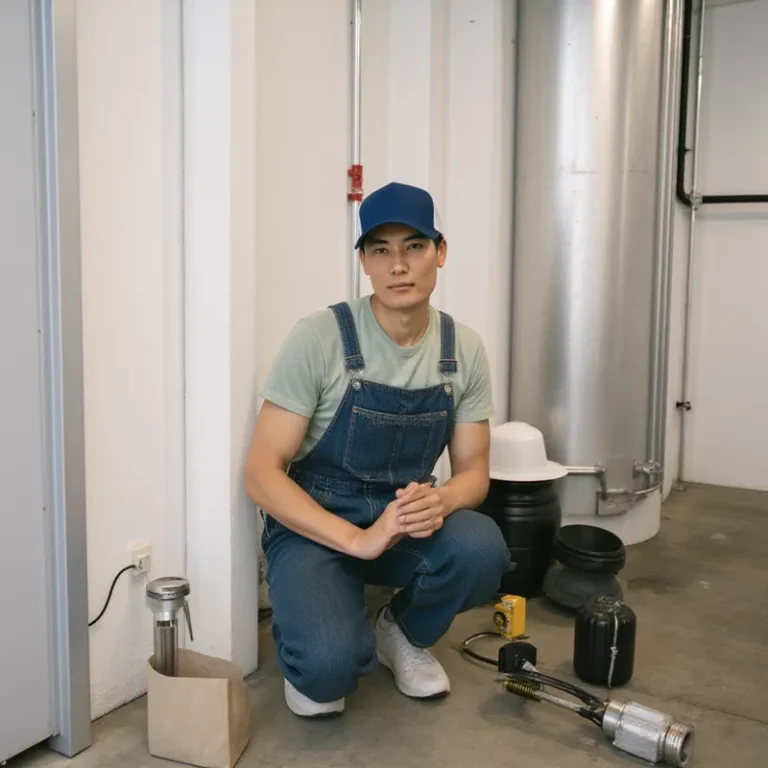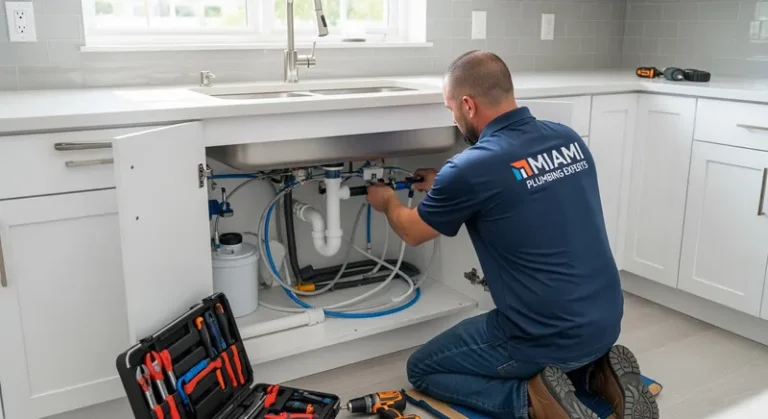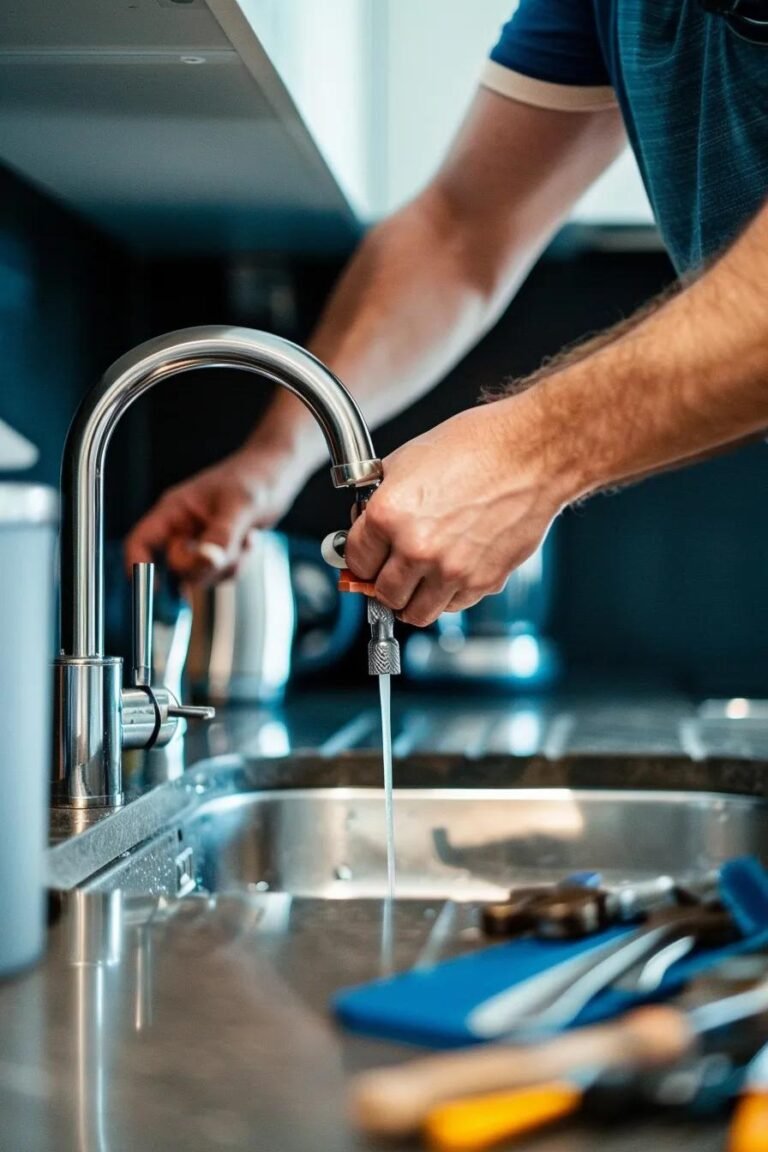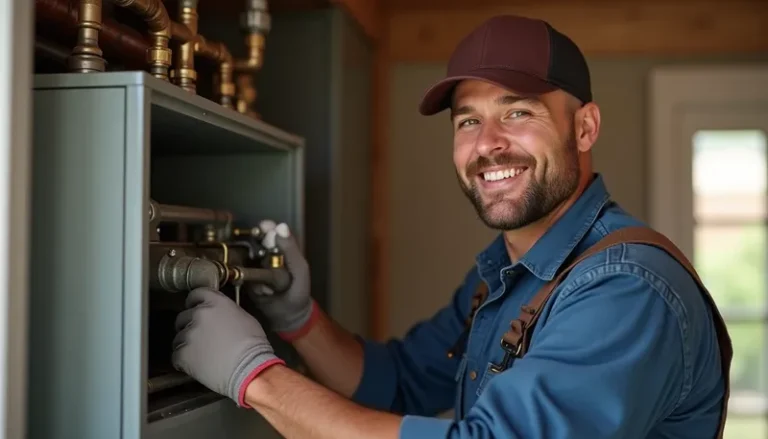Septic Tank Pumping Service – Reliable Septic System Pumping Near You!
Did you know that nearly 30% of all U.S. households rely on septic systems for wastewater management? If you’re one of them, it’s vital to understand the importance of regular septic tank pumping. Neglecting this service can lead to costly repairs and health hazards. What’s involved in the pumping process, and how can you tell when your tank needs attention? Let’s explore the key aspects of maintaining your septic system effectively.
Understanding Septic Systems
Septic systems are essential for managing wastewater in areas without centralized sewage treatment. They function by separating solids from liquids, allowing the effluent to percolate into the soil.
In a typical system, wastewater flows from your home into a septic tank, where anaerobic bacteria break down organic matter. The tank’s design prevents solids from exiting and clogging the drain field.
Effluent then moves to a drain field, where it’s filtered through soil, further treating the wastewater before it reenters the groundwater.
Effluent is filtered through soil in the drain field, ensuring effective treatment before reentering groundwater.
Maintenance is vital; neglecting your septic system can lead to backups and costly repairs. Understanding how your septic system operates helps you make informed decisions about its care and longevity, ensuring it effectively manages your household wastewater.
Signs Your Septic Tank Needs Pumping
When your septic tank is overdue for pumping, certain signs can indicate that action is necessary. You may notice unpleasant odors around your yard, particularly near the tank or drain field.
Additionally, if your toilet or drains are slow to empty, this could signal a full tank. Standing water or soggy areas in your yard, especially over the drain field, are also red flags.
Other indicators include gurgling sounds in your plumbing or frequent backups in your home. If you observe these issues, it’s essential to schedule a pumping service promptly.
Ignoring these signs can lead to more severe problems, including costly repairs and health risks associated with sewage backups.
The Pumping Process Explained
Understanding the pumping process is vital for maintaining your septic system effectively. When a professional arrives, they’ll first locate the tank and remove the lid. Using a vacuum truck, they’ll extract the sludge and scum, preventing overflow and damage. Here’s a quick overview of what happens during pumping:
| Step | Description | Importance |
|---|---|---|
| Locate the Tank | Find the septic tank lid | Guarantees efficient operation |
| Remove Lid | Open the tank safely | Prevents contamination |
| Vacuum Sludge | Extract waste with a vacuum | Protects system integrity |
| Inspect Tank | Check for issues | Prevents future problems |
| Close and Seal | Secure the tank lid | Maintains system function |
This process is vital for keeping your system functioning smoothly.
Benefits of Regular Septic Tank Pumping
Regular septic tank pumping is essential for preventing costly repairs and guaranteeing your system operates efficiently.
By maintaining a consistent pumping schedule, you can enjoy several benefits:
- Extended Lifespan: Regular pumping reduces the risk of sludge buildup, prolonging the life of your septic system.
- Prevent System Failures: By removing solids and preventing clogs, you minimize the chance of system backups and failures.
- Improved Efficiency: A well-maintained septic tank operates more efficiently, reducing the likelihood of unpleasant odors and slow drainage.
Investing in regular pumping not only safeguards your property but also enhances overall sanitation and environmental safety.
Prioritizing this maintenance step guarantees your septic system continues to function properly for years to come.
How Often Should You Pump Your Septic Tank?
How frequently should you pump your septic tank to guarantee peak performance? Generally, it’s recommended to pump your tank every 3 to 5 years, but this can vary based on several factors.
The size of your tank, the number of occupants in your home, and your water usage habits all play a role. For instance, larger families or homes with high water usage may need more frequent pumping, potentially every 2 to 3 years.
Additionally, if you notice slow drains, gurgling sounds, or unpleasant odors, you should consider pumping sooner. Regular pumping prevents sludge buildup and maintains system efficiency, helping you avoid costly repairs and prolonging the life of your septic system.
Selecting a Reliable Septic Tank Pumping Service
Choosing a reliable septic tank pumping service is essential for maintaining your system’s efficiency and longevity.
Selecting a dependable septic tank pumping service is crucial for ensuring your system operates effectively and lasts longer.
To make certain you select the right provider, consider the following factors:
- Experience and Reputation: Look for companies with a proven track record and positive customer reviews.
- Licensing and Insurance: Confirm the service holds the necessary licenses and has insurance to protect you from liability.
- Equipment and Methods: Inquire about the equipment used and their pumping methods to guarantee effective service.
Costs Associated With Septic Tank Pumping
Understanding the costs associated with septic tank pumping is essential, especially since these expenses can vary considerably based on several factors.
Typically, you can expect to pay between $200 and $500 for a standard residential service. Factors influencing the cost include tank size, location, and accessibility. If your tank requires extensive cleaning or repairs, additional charges may apply.
Regular maintenance and the frequency of pumping can also impact overall expenses. For instance, larger tanks or those in difficult-to-reach areas may incur higher service fees.
Always request a detailed estimate before hiring a service. This guarantees you’re aware of all potential costs, allowing you to budget effectively for septic tank maintenance.
Tips for Maintaining Your Septic System Between Pumpings
To keep your septic system functioning efficiently between pumpings, regular maintenance practices are essential. By implementing these straightforward tips, you can prolong the lifespan of your system and prevent costly issues.
- Limit Water Usage: Be mindful of your water consumption to reduce stress on the system. Fix leaks and spread out laundry loads over the week.
- Avoid Chemical Additives: Steer clear of harsh chemicals that can disrupt the balance of beneficial bacteria in your tank.
- Know Your System: Familiarize yourself with your septic layout. Avoid parking or planting near the drain field to prevent damage.
Wrapping Up: Why Regular Septic Tank Pumping Is Essential
In summary, keeping your septic system in top shape is essential for your home’s sanitation and longevity. Regular pumping helps avoid costly repairs and unpleasant surprises, like a clogged drain that feels like a medieval siege. By staying informed and scheduling timely maintenance, you can guarantee your septic tank operates efficiently. Don’t wait for signs of trouble—invest in a reliable septic system pumping service today and give your septic system the care it deserves. Contact us today for a free septic-tank pumping service quote and speedy service.





